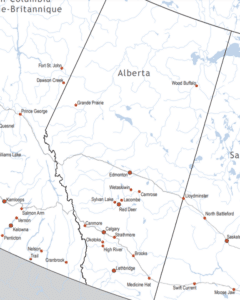Protecting Yourself: Navigating the Ban on Non-Canadians Buying Residential Real Estate in Canada

- Canadian Citizen;
- permanent resident of Canada;
- person registered under the Indian Act;
- a temporary resident with a visa under very strict circumstance;
- a protected person under the Immigration and Refugee Protection Act; and/or
- someone who is married or in a common-law relationship with one of the above.
Alternatively, non-Canadians are only able to purchase residential real estate in census agglomerations or census metropolitan areas. With these restrictions there are concerns about how to ensure that a property is not being purchased by someone who is not legally allowed to do so. There are also concerns on how to ensure that one is able to buy residential real estate in Canada.
How Can a Seller Protect Themselves From Selling To A Non-Canadian?
Sellers often rely on the honesty of buyers during the sale of their property, including the buyer’s residency status under the Income Tax Act. To address the current situation, sellers can add a representation and warranty to the contract that confirms the following:
- The buyer will remain a Canadian Resident at the time of possession;
- The buyer has the legal right to buy the property; and
- The buyer is not a non-Canadian under the Prohibition on the Purchase of Residential Property by Non-Canadians Act
There can also be additional terms added to the contract. These can prevent the buyer from assigning or transferring the contract to anyone that would be considered a non-Canadian under the Act.
Finally, there can also be additional remedies to protect the seller. Remedies i they discover that the buyer has been untruthful with their representations and warranties. Some examples of remedies can be:
-
- The ability to terminate the contract with no negative impact on the seller; and/or
- Forfeiture of the buyer’s deposit if it is discovered that they have lied about their residency status.
How Can a Buyer Make Sure They Can Buy A Property?
The best way to protect yourself is know the Act! As mentioned above, a Canadian is anyone who is either a:
- Canadian Citizen;
- permanent resident of Canada;
- person registered under the Indian Act;
- a temporary resident with a visa under very strict circumstance;
- a protected person under the Immigration and Refugee Protection Act; and/or
- someone who is married or in a common-law relationship with one of the above.
There have been recent changes in Act that you should know.
- Work Permit Holders
The amendment allows work permit holders with 183 days or more of validity remaining on their work permit or work authorization to purchase a residential property so long as they do not already own another residential property. Through this amendment, they government has removed the requirements for previous tax fillings and work experience in Canada.
- Vacant LandThe prohibition will no longer apply to vacant land that has been zoned for residential and mixed use purposes. Non-Canadians are now able to buy the land even if they are planning to use the vacant land for residential development.
- Exception For Development PurposesNon-Canadians are now able to purchase residential property for the purpose of development. This will continue to apply to publicly traded corporations under the Act. But it has been expanded. It also applies to publicly traded entities formed under the laws of Canada or a province and controlled by a non-Canadian, subject to the below limit.
- Corporate Foreign Control ThresholdAny Canadian corporation or entity with 10% or more direct or indirect ownership of shares or ownership interests by a non-Canadian, as defined in the Act, will now be subject to the Prohibition. This is a change from the previous 3% threshold.
Kahane Law Office Can Help!
Ultimately, the Act has left a lot of questions still unanswered. By understanding the provisions of the Act and being aware of recent changes, both sellers and buyers can navigate the regulations and protect their interests in residential property transactions within Canada. If you have any questions regarding the Act, how to better protect yourself or the ability to buy a property, please call us at 403-225-8810. You can also email us here and one of our lawyers will be able to help!

